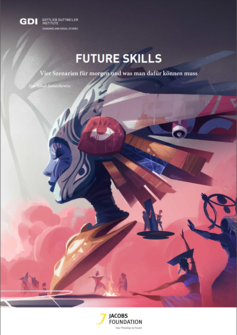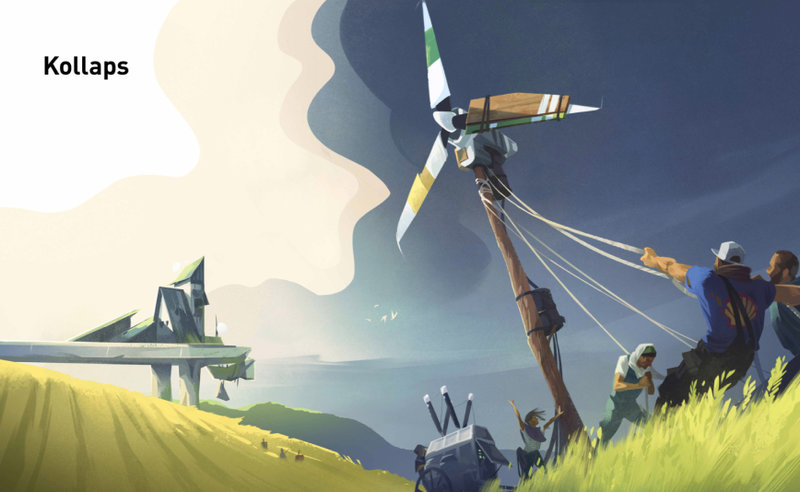Der nachfolgende Text basiert auf einem Auszug aus der GDI-Studie «Future Skills», die Sie über unsere Website beziehen können.
Das Szenario Gig-Economy-Prekariat beschreibt eine Welt, in der aufgrund technologischer Arbeitslosigkeit Mangel herrscht. Maschinen haben menschliche Arbeit in einem solchen Tempo übernommen, dass weder der Arbeitsmarkt noch der Sozialstaat mithalten können. Bestehende Freiheitsgrade sind aber nicht eingeschränkt, da in dieser Welt immer noch alles möglich ist. Viele dieser Freiheiten sind aber faktisch nur einer kleinen Elite vorbehalten.
Grundlage für dieses Szenario ist die medial sehr prominent gehandelte Frage, ob Maschinen, insbesondere Entwicklungen im Bereich der künstlichen Intelligenz, Menschen die Arbeit wegnehmen werden. Diverse Studien haben versucht, den Anteil der durch Digitalisierung bedrohten Jobs für die nächsten ein bis zwei Jahrzehnte zu schätzen. Die Analysen kommen dabei zu sehr unterschielichen Resultaten von 50% über 30% bis hin zu 5–10 %.
Das klassische Beispiel für den Wandel im Arbeitsmarkt ist die Landwirtschaft. Um das Jahr 1800 machte sie in Europa vielerorts noch mehr als die Hälfte aller Jobs aus. Heute liegt der Anteil im einstelligen Prozentbereich. Deswegen herrscht aber keine Arbeitslosigkeit. Ehemalige Landarbeiter*innen fanden neue Jobs in Fabriken. Doch was werden Lastwagenfahrer*innen oder Verkäufer*innen tun, wenn ihre Arbeit automatisiert wird? Laut dem Ökonomen Jeremy Rifkin würden zwar neue Jobs entstehen, doch seien diese meist hochqualifizierten Arbeitnehmer*innen vorbehalten, da die Jobs die Handhabung der Technologie zum Inhalt haben. Und selbst das Patentrezept Bildung ist keine Erfolgsgarantie, weil auch zunehmend anspruchsvolle, hochqualifizierte Jobs automatisiert werden könnten. Im Gegensatz zur Dampfmaschine oder zum Traktor sind Software und Entwicklungen im Bereich der künstlichen Intelligenz nicht auf bestimmte Tätigkeiten beschränkt, sondern können Menschen in vielen wirtschaftlichen Sektoren gleichzeitig verdrängen.
Im Gig-Economy-Prekariat-Szenario leben viele Menschen am Existenzminimum. Staatliche Leistungen wie Bildung oder Gesundheitsversorgung sind nur minimal gegeben. Alles über das Minimum hinaus wurde privatisiert und ist deshalb sehr ungleich verteilt.
Diejenigen, denen Land, Maschinen und Immobilien gehören, wohnen in abgeschotteten Steueroasen mit ausgezeichneter privater Infrastruktur. Mit Mauern und vereinzelten philanthropischen Engagements schützen sie sich vor allzu grossen Begehrlichkeiten der prekären Masse. Diese buhlen als digitale Tagelöhner um rar gesäte Kurzzeitjobs. Ob die nächste Miete bezahlt werden kann, ist ungewiss; Hoffnung auf eine baldige Verbesserung existiert kaum. Natürlich gibt es auch Menschen, die mit dieser Flexibilität sehr gut umgehen können. Besonders ältere und schlechter gebildete Menschen aber haben grosse Mühe, sich an einen sich ständig wandelnden Arbeitsmarkt anzupassen.
Welche Skills werden in einer sich so rasch verändernden Umgebung von Nöten sein?
Selbstbestimmung
In diesem Szenario ist es das Wichtigste, Eigenantrieb und Selbstverantwortung zu entwickeln. Denn niemand kümmert sich um einen, wenn man es nicht selber tut. Voraussetzung dafür ist es, mit dem Stress umgehen zu können, den die sich ständig ändernde, unsichere Situation verursacht.
Lebenslange Lernfähigkeit
Da der Arbeitsmarkt ständigen Veränderungen unterworfen ist, wird lebenslanges Lernen zur Pflicht. Es braucht die Fähigkeit, sich Wissen schnell anzueignen und komplexe und im Überfluss vorhandene Information zu verarbeiten.
Maschinen-Kompetenzen
Die Fähigkeit, mit Maschinen umzugehen, also Computer-Skills und Programmierfähigkeiten sind notwendig, um Maschinen zur Produktivitätssteigerung zu nutzen und nicht von ihnen verdrängt zu werden.
Neben dem «Gig-Economy-Prekariat» gibt es noch weitere Szenarien, die uns auf verschiedene mögliche Zukünfte vorbereiten. Was müssen wir zukünftig vielleicht noch können müssen? Laden Sie «Future Skills» jetzt kostenfrei herunter!

Studie, 2020 (kostenloser Download)
Sprachen: Deutsch, Englisch, Französisch
Format: PDF, 80 Seiten
Im Auftrag von: Jacobs Foundation

Während wir jahrzehntelang mehr Wohlstand, Fortschritt und Freiheit erwartet hatten, scheint die Ära der linearen Entwicklung endgültig vorbei zu sein. Was ist, wenn die uns bekannte Gesellschaft im Jahr 2050 verschwunden ist? Wozu sollten wir fähig sein?
«Das machen dann die Roboter»
Wie verändert die Krise unser Verhältnis zur Arbeit? Werden wir in Zukunft tatsächlich noch fünf Tage pro Woche ins Büro fahren? Karin Frick gibt im Interview mit dem Tages-Anzeiger Antworten.
Future Skills: Vollautomatisierter KI-Luxus
Roboter verrichten den Grossteil unserer Arbeit, und Mängel sind passé. Das ist ein Szenario der GDI-Studie «Future Skills». Welche Fähigkeiten werden Menschen benötigen?